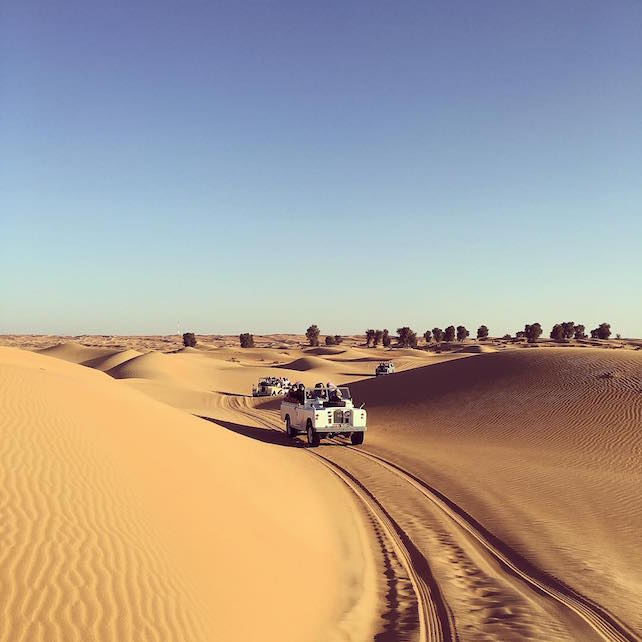Why It’s More Important Than Ever to Travel More and Fear Less
AFAR Magazine |
 JULIA COSGROVE
JULIA COSGROVE
By Julia Cosgrove
Connecting with the world is now more important than ever.
This spring, during my first day in Dubai for AFAR Experiences, our travel event series, I sat down over a minty lemonade with opening speaker Parag Khanna, a 38-year-old geopolitical expert and bestselling author. Parag’s credentials are impressive: CNN Global Contributor and a former fellow at the New America Foundation and the Brookings Institution think tanks. Weeks after he addressed our group, he gave a keynote talk at the TED Conference in Vancouver.
For me, Parag defines what a global citizen is today. Born in India, he was raised in Dubai, New York, and Germany, educated in Washington, D.C., and London, and currently calls Singapore home. Parag and I discussed his expat life, travels, and forthcoming book, Connectography: Mapping the Future of Global Civilization.
The book ambitiously examines the ways in which technology, infrastructure, geography, and business are intersecting to shape our world. He posits that national borders are being superseded by Internet cables, and that the more connected you are, the better your chances for survival and success. I can’t do justice to Parag’s book here. Buy it, read it, and you’ll be reminded once again that in the United States our view of the world can be relatively myopic, given how quickly the rest of the globe is changing.
With some presidential candidates suggesting walls at the border and shutting out entire groups of people, it is more important than ever to travel and connect with your fellow humans—whether they’re from Hamburg, Houston, or Havana.
Travel is the antidote to fear. We need to get outside our comfort zones and talk with people whose takes on life are different from our own. We need to be raising the next generation of global citizens, not walling them out—or in.